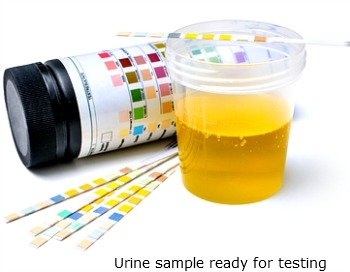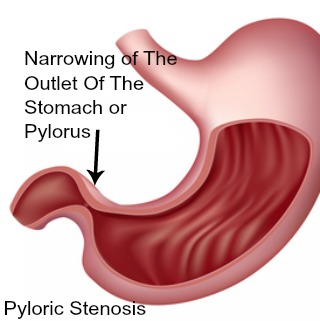Abdominal Pain In Babies 0 to 3 Months
Are you a parent or care-giver to a newborn baby or an infant and suspects that he or she may be having abdominal pain?
Is he or she crying excessively or not wanting to have its feeds?
Watching your little one in pain of any degree is certainly distressing for all.
The good news is that in more than 90 percent of the time, the cause of abdominal pain in babies at this age are not things that could seriously affect the health of your baby. What are your thoughts? Could this be wind? Teething? Colic? Or allergy to baby milk?
Abdominal pain in this age group is difficult to be sure of. You may be worried that your son or daughter might be having abdominal pain in this age group if he or she is:
- Wriggling and twisting the center of the body or abdomen during or after feeding
- Crying and perhaps vomiting
- Abdomen seems bloated or distended
- Cries or grunts with arching of the back
- Grunts and wriggles, with both legs lifted upwards
If you suspect that your baby is having abdominal pain, well, do not doubt your instincts. It is better to be overly cautious than to potentially miss a real problem. Seek help from an experienced healthcare provider. A quick examination may be all that is needed to exclude a serious cause of abdominal pain.
Here are the 7 common causes of abdominal pain in new born babies up to the age of 3 months:
1. Trapped Wind, Gas Or Aerophagia
We all swallow air when talking or crying. Babies are even more prone to do so, when sucking. They such in air with their feeds. They may gulp in a sizable amount of air that creates a column of air in their tinny intestinal tube or lumen. Because the lumen of their bowels are so small compared with older children or adults, the swallowed air causes distension of the intestinal wall, leading to abdominal pain.
Bottle feed infants are more likely to suffer with this than breast feed babies.
Signs of aerophagia or intestinal gas in newborn babies and older children include:
- Wriggling and twisting during or after feeds
- Burping a lot
- Abdomen looks fuller or distended compared to the amount of feeds that has been taken
- Passing plenty of flatus
What You Can Do:
- Using the appropriate feeding bottle teat will help to prevent or reduce the incidence of aerophagia. Do not increase the size of the teat yourself.
- Ensure you "wind" your baby thoroughly after each feed. You can do this by positioning your baby in the erect position on your shoulder, with its belly resting on your shoulder, and then gently stroke its back down until you hear a couple of burping sounds with release of wind
- If the above steps does not help, and if your child still seems to be in pain, seek medical help.
2. Baby Colic
The word colic is used to describe a common condition seen in babies between the age of 0 to 3 months, though it can last up to the fourth in some babies. It is also called infantile colic, infant colic or just colic. These babies:
- cry inconsolably without any obvious cause for a prolonged period of time
- associated with redness of the face,
- pulling up of their knee and legs
- tend to cry more in the evenings
- crying may last for 1 to 3 hours
- episodes may continue for up to 3 days in a week and for up to 3 weeks at a stretch
- may have no trouble feeding
- are well in-between times, when not crying
- grow normally
The exact cause is not known. It is however thought to be related, perhaps to cow's milk allergy or in some cases due to reduced amount of good bacteria called lactobacilli in the gut of the baby. The emotional climate in the house may also be associated with increased likelihood of a colic.
Baby colic or infantile colic is a very common cause of abdominal pain in babies 0 to 3 months. Up to 1 in 3 babies have colic. It is very distressing for parents. If it sounds like your baby fits the picture of suffering with colic, be rest assured that it is not your fault. Speak with your healthcare provider or family doctor for reassurance.
What You Can Do:
- See your family doctor to exclude other conditions like ear infection, reflux, bowel infection, constipation, or urine infection or even strangulated hernia in that age
- Try Infacol drops you can buy from the chemist without prescription
- If that does not work, you can try the original Woodward's Gripe Water
- Colief® Infant Drops has been shown to help reduce the duration of crying in children with colic. It contains lactase which helps to break down the lactose content in milk in some children with colic, making the milk easier to digest and less pain.
- If all the above fails, discuss with your doctor about trying a 2-week cow's milk free feeding of your baby. You may be prescribed whey hydrolysate formula (brand name Pepti-Junior) instead.
- During crying, look to create "white noise" to distract your baby, or put him or her in a pram or buggy and push about. Some have found out that placing the baby in a car seat and drive around quietly puts them to sleep.
- Breast feeding mothers may also want to change their diet and see if they can avoid milk in their meal and try different other food types.
3. Reflux (Gastro-Esophagial Reflux Disease- GERD)
GER or gastro-esophageal reflux is the effortless regurgitation of mild during or after feeding in babies. This is a common condition in nearly all babies. It is due to immaturity of the muscle sphincter that normally would protect the junction where the esophagus and the stomach meets.
This immaturity leads to the backward flow of acid rich stomach content into the esophagus, causing irritation of the lower esophagus with associated upper abdominal pain and heartburn.It is more common in babies under four months of age, and another cause of abdominal pain in babies 0 to 3 months old.
Symptoms of gastro-esophagus-reflux disease in infancy include:
- Regurgitation / vomiting of milk after feeding
- Avoiding feeds even when hungry
- Crying during or after feeds with arching of the back
- There may be episode of choking or breath holding
- May start losing weight or not adding weight on as expected for age
- In severe cases, baby might be coughing, wheezing and develop a hoarse voice or cry
- There may also be difficulty sleeping due to the irritation that comes from lying flat.
Gastroesophageal reflux disease is very common. Its symptoms could be confused with those of other childhood diseases like pyloric stenosis, cow's milk allergy, baby colic, urine infection, and many other disease.
What You Can Do:
- If you suspect that this might be the cause of abdominal pain in your baby, please see your doctor.
- You may be able to get feed thickener suitable for babies like Carobel® or Nestrogel® or add rice or corn to the milk to help thicken the milk. This means that after feeding, the food is more likely to remain in the stomach, and not reflux out.
- You are most likely going to get prescribed sachets of Infant Gaviscon® to add to each meal. You can use up to 6 sachets in a day, but no more. Many children show remarkable improvement within a few days of introducing this. You can continue the use of Infant Gaviscon® till the end of the fourth month of age.
- If the above measures does not seem to work, go back to see your doctor who may then prescribe Randitidine syrup on its own or in combination with Domperidone to be used with the Infant Gaviscon®. Most babies respond to these three combination. Please be aware that even though the Domperidone is very effective for the treatment of reflux, it is not licensed for this.
- Feeding in smaller amounts, propping your baby up when not sleeping and even in bed, and using baby feeds with anti-reflux property are other things that can help.
- Whatever happens, know that your daughter or son would pass through this stage very soon. This problem tends to get better after age 4 months.
4. Cow's Milk Allergy
Cow milk allergy is by far the most common food allergy in children under 1 year of age and it is a very common cause of abdominal pain in babies 0 to 3 months. It occurs in 1 in every 20 child and can affect both bottle fed and breast fed babies (from the mother's diet).
Though the word allergy is used here, it also covers cow's milk protein intolerance.
Many babies with skin problems including eczema and nappy rash, as well as breathing problem and diarrhea who go to see their doctor frequently without any clear improvement may actually be suffering with cow's milk allergy.
Symptoms of cow's milk allergy include:
- Development of rash that tends to be worse after feeding
- Loose or frequent stools
- Constipation in some babies
- Abdominal pain
- Very bad reflux that does not respond to the usual treatment for reflux
- Baby may refuse taking milk each time
- There may be blood stain in stool
- Your child may vomit and in some cases, there may be little speck of blood in the vomit
- There may be associated breathing problems, lip or eye lid swelling, troublesome nappy rash that defies all treatment
- Symptoms tend to begin within the first month of life
The presence of one or two of the above symptoms alone does not necessarily mean that your baby does have cow's milk allergy.
What You Can Do:
- If you suspect that your baby might be having cow's milk allergy, the best thing to do first is to see your doctor
- Keep a diary of when things started going bad, what feed your baby was on before and after this time and what was recently introduced if any
- Do not "go for it" and just cut milk out of your diet or your baby's diet straight away completely
- If you must experiment, then the smart thing to do is to remove cow milk completely from both your diet and your baby's diet for two weeks ONLY, and see if there is any improvement in symptoms. You can try Pepti-Junior or Neocate Range of breast milk alternatives. At the end of the two week's period, it is wise to see your doctor to discuss this and let your baby be properly professionally assessed.
- Do not use Soya based infant formula because of a risk of a special chemical called phytoestrogens in it that can interfere with your baby's hormones.
5. Constipation
While you are still trying to deal with the challenges of having a new baby, finding the best time to sleep, working out what type of milk would satisfy your new little Angel, then you notice that each time he or she is about to pop, it is not without a struggle. Your baby is constipated. S/he seemed very distressed. The stool is hard.You can see that your child is having abdominal pain at that tender age.
Infant constipation is another very common cause of abdominal pain in babies 0 to 3 months. It tends to:
- Occur more in bottle-fed babies than breast fed ones.
- Follow a change in the type of formula milk given
- Improve once the cause is identified and remedied
- Stop after the age of 3 months in many babies, though could continue into late infancy and childhood
If you suspect that your child is having constipation a cause of his or her abdominal pain, do not despair. It is very much treatable. Please see more information here on how to work out if your baby is actually having constipation, what you can do and treatment options available.
6. Urine Tract Infection
Urine tract infection is the most common serious bacterial infection seen in infants and children.
It is a very very common cause of abdominal pain in babies 0 to 3 months, as well as in older children. Also called UTI for short, it is usually due to bacteria infection of the kidney (s), or urinary bladder.
Babies can pick up a urine infection from birth. At least 2 to 3 out of 100 children under the age of 1 will develop urine infection at any one time.
The symptoms of urine infection in babies under 6 months of age include:
- Not feeding well
- Vomiting
- Looks unwell
- Fever - newborn babies may not have fever because of their immature systems
- Abdominal pain
- Irritable and sometimes high pitch crying
- Blood in urine in some cases
- Strong smelling urine
The symptoms of urine infection could vary widely at this age.
What You Can Do:
- Because urine infection could be a very serious illness, if you suspect that your baby might be having urine infection, do not waste time. Take him or her to see your doctor. If you can, go with a sample of urine.
7. Pyloric Stenosis
Pyloric stenosis is a condition where the lower outlet of the stomach that connects the small intestine becomes narrow.
The exact cause of pyloric stenosis is not known. Some people think it might be due to irritation of curd protein in those who are genetically predisposed to it. Some others think it is due to failure of the muscles in the pylorus to relax.
This condition is reasonably common - seen in every 500 babies born.The symptoms are usually seen within the first two weeks of life, and certainly by the 6 to 8 weeks in some babies. Rarely, it could delay till the third month of life.
The symptoms of pyloric stenosis include:
- Very forceful vomiting during or after feeding - described as projectile
- Baby is obviously hungry and would seek his or milk after vomiting
- Wriggling or turning during feeding due to abdominal pain
- A small outline of the bowels might be visible though the skin in thin babies
- Weight loss
- There may be family history of this condition
- Baby boys tend to suffer with this condition than girls
- Symptoms are observed usually between the 2nd to 8th week of life
What You Can Do:
If you suspect that your baby has pyloric stenosis, the best thing to do is to see your doctor. Usually, a small operation is needed to open up the narrowed stomach outlet and the problem is solved.
Other Causes of Abdominal Pain In Babies 0 to 3 Months Of Age
Apart from the above seven most common causes of abdominal pain in babies, three months and under, the following are other causes of pain in these children. These other causes are not so common. They include:
|
|

Abdominal Pain In Babies 0 to 3 Months: Have Your Say
Does your baby seems to be suffering with abdominal pain? Do you suspect that he or she might have any of the conditions discussed above, or indeed any other cause of abdominal pain? Share your concerns or story here. We would love to hear from you.
What Other Visitors Have Said
Click below to see contributions from other visitors to this page...
16weeks baby with abdominal serious pain Not rated yet
My baby crys but day and night and always fart forcefully with straining to poop. She feed well but will always vomit and the pain will not let her sleep …
4 month old baby girl with andominal distention and pain on right side Not rated yet
My baby girl started with vomiting that followed by crying. We took her to the doctor who prescribed the glycerin suppository and anti colic drugs and …
3 month old daughter with abdominal pain She always Grunts and wriggles Not rated yet
She always Grunts and wriggles, with both legs lifted upwards and crying due of not sleeping, she just finished taking nospamin drop and it relief, but …
3 month old baby with fussiness Not rated yet
I have a 3 month old daughter. I have been to her doctors about 2-3 times a month because I feel that there is something more than her diagnosis.
Her …
|
Help Keep This Site Going |
Return To Home Page From Abdominal Pain In Babies 0 to 3 Months Old





